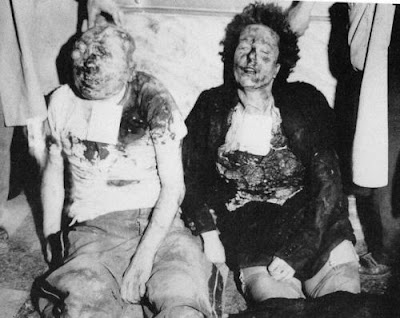The truly insightful ones, underneath their smiles and their joy at finally being free, are also scared shitless.
 |
| A tyrant can be so exalted among his people that he appears invincible, as if he'll always be their ruler. |
It’s interesting, in that context, to read Rousseau steadfastly refusing to say anything like what the best government for people would be. That’s what a good chunk of traditional political theory is – analyzing and arguing over state institutions, their powers, and their affects in shaping a political culture, to identify the best form of government.
Thinking about this question is where Rousseau’s pessimism begins to emerge. However much he’s known as a utopian thinker – and however much he really is a utopian thinker – he’s a deep pessimist about real human potential.
He shies away from answering this question with any content for two reasons. One is an empiricist’s humility. Rousseau knows that there’s a huge amount of cultural and economic variety just among the different states and societies of Europe.
You can’t, given that variety, give an account of the best forms of government that will be universal. Not if you want that account to have much content other than the will to freedom. Which doesn’t get our hypothetical fellow in the ruins of his old tyranny out of his problem.
Because you don’t escape the problem of how best to govern people. Rousseau explains that all governments – no matter how virtuous in their beginning – will always eventually fall apart. As he puts it, any unified government of free people will eventually collapse into either another tyranny or violent anarchy.
So our man in the rubble can build with all the ambition and wisdom his people can muster. It will all be a tyranny again eventually.
 |
| Only a few tyrants are ever really so fortunate. And you think Qaddafi got it rough in the end. You should have seen Rome. |
* Here's another welcome sign of Rousseau's materialism. Nowhere in his account of the reasons for humanity's corruption does he fall back on any Christian concepts of original sin. He relies on no talk of the soul or our fallen relationship with God. He speaks only of the material processes of culture, the social forces among classes as some communities tend to work as private citizens and some communities tend to produce governors, bureaucrats, and other powerful people.
Any stable state maintains itself in tension between a few fundamental social forces. As Rousseau puts it, that tension is between the sovereign power of the people themselves, and the institutional power of the governing classes.
In a well-structured society, it’s a creative tension – incredible achievements arise from the battles and rivalries among the popular and institutional classes. But the heat will always wear away the machinery of the government. That creativity may make a state last longer and achieve greatness, but things will begin to creak.
They’ll be near-silent, but audible.
That’s the tragedy of human society. We can achieve so much when we can encourage freedom in society while building institutions that solve our coordination problems for large-scale activity. But the energy in any culture is fuelled through the tension and conflict of people and institutions.
Such greatness occurs only in the most virtuous governments, which are rare enough as it is. Most real states are far more vicious. Cruel. The 20th century even saw the perfection of government through mass murder-suicide. Our virtue is rare.
If even the most virtuous will inevitably fall, why should we even hope? . . . . To be continued
No comments:
Post a Comment